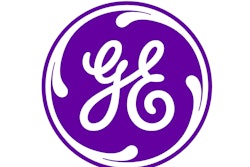GE HealthCare has released an inaugural report focusing on the environmental and social impacts of its strategy as standalone company, following its spinoff from GE in January 2023.
The sustainability report was shaped by an analysis conducted in 2021 while GE HealthCare was still an operating business of GE and highlights the company's progress in fiscal year 2022 on several key goals, including the following:
Environmental impact
- Reduced operational greenhouse gas (GHG) emissions by 27% since 2019, in line with the Company’s goals to reduce Scope 1 and 2 emissions by 50% by the year 2030 and achieve net zero by 2050
- Registered with the Science Based Targets Initiative with a commitment to provide targets for validation by year-end 2023
- Joined the Department of Health and Human Services/White House pledge to decarbonize the health sector and make healthcare facilities more resilient to the effects of climate change
Social impact
- Established a set of cultural operating principles designed to serve, guide, and inspire GE HealthCare’s people as they deliver on the company’s commitment to patients and customers
- Announced a plan to establish a GE HealthCare Foundation in 2024 to support the company’s corporate philanthropy and volunteerism strategies
- Appointed a new chief diversity, equity, and inclusion officer to establish and drive GE HealthCare’s diversity, equity, and inclusion strategy
Governance and accountability
- Launched as a standalone public company with strong corporate governance provisions, including an independent lead director with clearly delineated duties and no supermajority provisions, poison pill, or dual-class share structure
- Relaunched GE HealthCare’s Code of Conduct, "The Spirit & The Letter," in 10 languages, with 99.7% of employees engaging (certified as having read and understood the code)
- Joined the UN Global Compact to align with the UN Sustainable Development Goals (UN SDGs) and support efforts to fulfill them
The company noted that it is currently carrying out a climate risk assessment that will inform its climate transition plan, as well as developing a net zero roadmap for Scope 1, 2, and 3 GHG emissions, with targets expected to be submitted for validation by the end of the year.
The full report is available here.



















